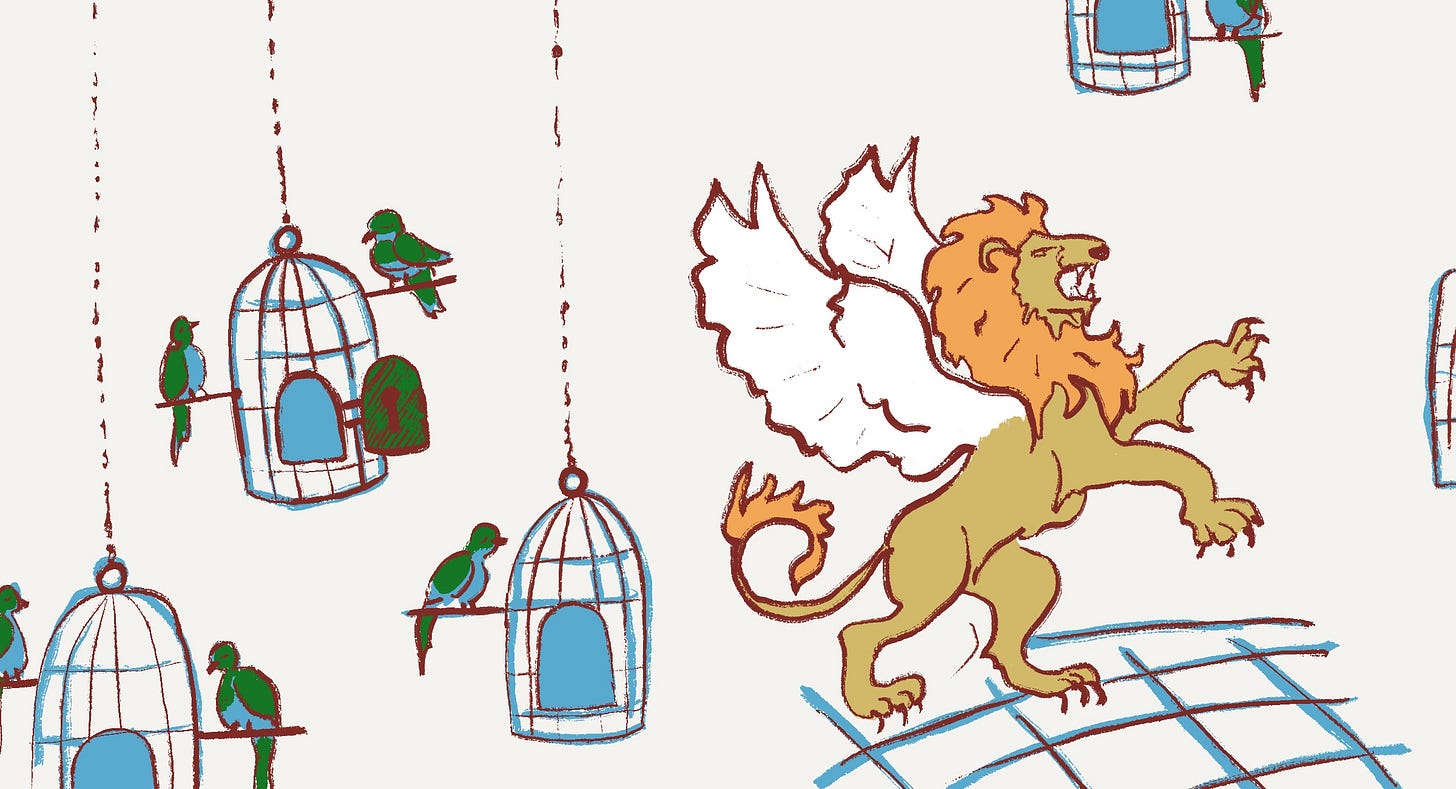Caged lions don’t create futures
How environments influence value creation more than individual character.
The more a company relies on the mental output of its people (their creativity, reasoning, interpersonal skills) the more company culture influences value creation.
“If you want to progress your career, provide as much value as possible.” This is a half-statement. What does it mean to provide value? What happens if your definition of value is different to that in your current environment?
Even if your company culture is not intentionally defined, it is there. People within respond by displaying whatever behaviours they infer to be rewardable in that environment, and dim qualities within themselves that might likely be either superfluous or punishable. I’ve seen, as I’m sure you also have, people whose distinct qualities thrive in one company, and equally are penalised in another for those same characteristics. Within myself, even. I once spent time in a workplace prudish enough that most employees did not even use full stops at the end of their statements, out of fear that it would convey as being too blunt. It manifested across communications both internally and externally, email memos to marketing campaigns. My direct approach — which helped me thrive in my MBA — hardly translated as valuable in that space. (I’ve since left that organisation.)
There are industries which rely much more heavily on human imagination. A theatre company that produces original works relies solely on its people’s ability to forge something tangible (a theatre production) from the elusive (raw ideas). If that company achieves this sustainably, season-on-season over years, it means they have landed the right model for operating. If execution is perpetually a struggle, it points to a flawed business, and therefore the wrong environment required for success.
So, what soil is necessary for valuable ideas to bloom and keep blooming across seasons?
Consider company culture from two views:
People — the kind of talent you attract.
Environment — the behaviours that the talent is enabled (or forced) to adopt.
The talent you attract says something about what your company signals to the outside world. You can often see a common thread among the character of the people in an environment. But to cherry pick a talent is not enough. You must ensure that the environment you create is conducive to them leaning into the behaviours you wish to see more of.
The most inventive person will wither in the wrong soil. A dandelion cannot take root in stone.
Think of a lion bred in a cage. Even after its release, it will struggle to unlearn what kept it surviving in confinement. Even a lion can inhibit itself, given the conditions.
The questions to ask yourself:
Is your company attractive enough to bring in lions?
And once inside, do you know how to feed them?



